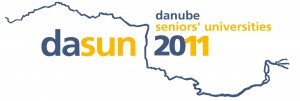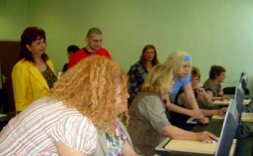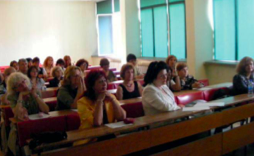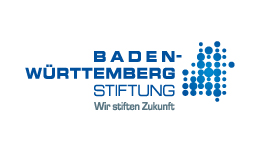Associate Professor Dobrinka Stoykova, SULSIT
The partners in the project DASUN in Sofia, Bulgaria were the State University of Library Stud- ies and Information Technologies (SULSIT) in partnership with the Association of University Libraries (AUL). For all activities we received advice from the Zentrum für Allgemeine Wissen- schaftliche Weiterbildung (ZAWiW) der Universität Ulm.
Preparation
During the first meeting in Ulm at the beginning of the project we made a brainstorming and decided some basics re thematic direction and structure of the planned education event for adults 50+ at our university. We made several assumptions about the learners’ as well as in- stitutions’ needs and interests. That helped us to design a questionnaire. A sociological survey was conducted with 140 respondents. Included were adults from 50 till 90 years, with different professions and level of education. We aimed to receive information about the respondents’ computer skills and if they are interested to improve their knowledge in that field. Then we had to clarify the form, themes, length of the education. Concerning the form, the biggest inter- est was shown in lectures, followed by practical education. Preferred were shorter education forms. Most popular themes were: “healthy manner of life”; “ideas for leisure time” ”informa- tion for treatment of illnesses” and “information about heritage”. This provided the basis for the design of our Academic Day.
Academic Day
The Academic Day was held on 8th June, starting from 9.30 until 17.00 o’clock. In the morning we had two lectures. The first one was “The Thracians and their belief in immortality” by Prof. Valeria Fol. The second lecture was “Typical third age diseases. Prophylactic and therapy pos- sibilities”, hold by Dr. Petrov. All participants received leaflets with web addresses on the above themes. After lunch we made several short presentations, disseminated leaflets with useful information and made practical exercises. There was a computer for every participant and tutors to help. The participants learned how to use Skype, how to sent an e-mail, how to communicate per facebook. Others were interested in how to find information in the Internet
Outcomes
The participants filled also a feedback form. As a motivation for the presence on the Academy Day most of them indicated – “I want to learn something new”. The majority of the respondents answered that they liked all presentations (70, 7%). They also said that the first lecturer was interesting, wonderful and incredible. Others indicated that they learned something new and interesting on the topic. The second lecturer was perceived as practical specialist in the most common diseases for that age. The most valuable was considered that the lecturer provides easy to implement information. Also all other presentations were highly appreciated. Special interest was shown in the practical exercises with the Internet, when the participants wrote their own e-mails, addresses in facebook and searched for practical information in Internet. We hope that this will help for better communication between older people. We hope that they will be more confident in searching for the necessary information on the web. In this we see the benefits of adult learning 50+ in universities.
The biggest percentage positive answers we received for the organization of the event. Most of the answers were – “I liked everything” or “I liked it because the topics were interesting, professional; presented in understandable language; there was a direct contact with the lec- turers; the Academy Day was organized dynamically, I received useful information on an aca- demic level.” There were no negative answers. Most importantly, 94% of the participants were willing to attend future academic days..
Problems to resolve
In Bulgaria the work activity of the adults 50 + is very high and organization of the Academy Days must be comply with the working time.
In conclusion, we understood that SULSIT, in partnership with AUL, disposes of enough tech- nical equipment and premises for realization of Academy Days and other similar events. Both organizations can provide quality education how to use information technologies. In the future the Academy Days can be realized as cyclic initiatives. The target groups can be defined more clearly according to their life position and interests. Another option is to create special virtual programs to improve the information knowledge of working people 50+. We can also arrange for adults 50 + guided trips to new cultural and historical sites.





